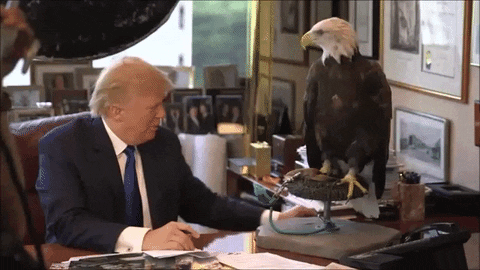TIME magazine announced its 2016 Person of the Year on Wednesday and it was not at all surprising. Moving away from “you” and “person ruining Germany,” the magazine selected Trump. They also made him sit in a ratty chair.
The accompanying cover story is good. There’s talk about the gulf between Trump and his voters (he’s rich, they’re not); the power of Trump’s gut instinct, which both propelled him to the presidency and will likely be his biggest liability in the White House; and Trump’s total inability to take responsibility for the horrific forces his candidacy has unleashed. Reflecting on Trump’s insistence that crime is out of control, despite a wealth of statistical evidence to the contrary, Michael Scherer distills Trump’s worldview: “The world is zero-sum, full of the irredeemable killers that Obama’s idealism fails to see.”
But Scherer also gets at what may have been the second-most important force driving Trump’s victory: his departure from decades of party orthodoxy. This paragraph is key:
While Trump offered public words of support for the Iraq War at the time, he sees George W. Bush’s great adventure as a disaster now. He rejects wholesale the social conservative campaign to keep transgender people out of the bathrooms they choose, but promises to reward conservative ideologues with a Supreme Court Justice of their liking. And he has little patience for the organizing principle of the Tea Party: the idea that the federal government must live within its means and lower its debts. Instead, he seems to favor expensive new infrastructure spending and tax cuts as economic stimulus, much like Obama did in 2009. “Well, sometimes you have to prime the pump,” he says. “So sometimes in order to get jobs going and the country going, because, look, we’re at 1% growth.” The next day, the third-quarter gross-domestic-product estimates would be released, showing an increase of 3.2%, up from 1.4% earlier in the year.
If the unified government that will take over Washington on January 20 has a fault line, this is it. Thanks to polarization, gerrymandering, and dark money, Congress is full of conservative ideologues and Trump has made it clear that he has little patience for ideologues. You can see that Trump is willing to carrot-and-stick it with Congress, giving them a conservative Supreme Court justice—perhaps the biggest prize there is—with the expectation that they will follow his tune when it comes to the economy. Deficit hawks, after all, tend not to be so hawkish when they’re in control. Carping about America’s balance sheet is a political tactic as much as anything else, a clever way of arguing that the other party is irresponsible.
For Republicans, it’s also been a dog whistle—the deficit means “the government is spending too much on nonwhite people”—and Trump’s knack for demagogic scapegoating makes it less relevant than it has been in decades. That dog whistle was key to the Tea Party’s success, and while Trump may differ from that group ideologically, he’s speaking their language when it comes to identity.
